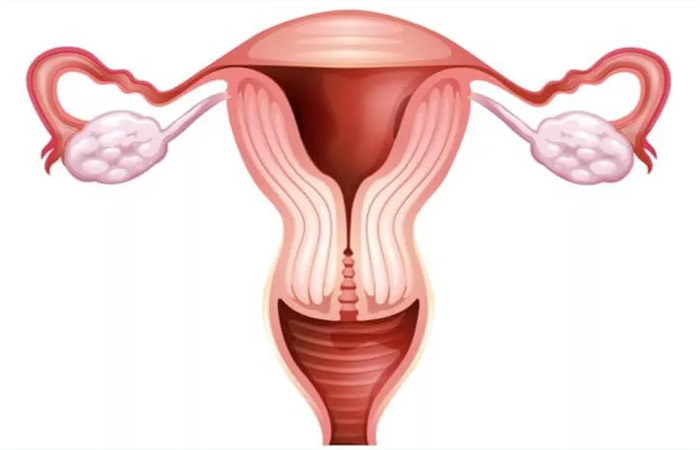What do we mean by fallopian tube cancer? This is known as the silent killer in many cases. There are numerous fallopian tube cancer symptoms that you should be aware of. This condition impacts the duct or the tube which enables carrying eggs to the uterus from the ovaries. This is a rare kind of gynecological cancer ultimately leading to ovarian cancer. Women are often at higher risks if they wish to get their BRCA gene mutations. Treatment will include surgical removal of the fallopian tubes and ovaries.
What is Fallopian Tube Cancer?
Fallopian tube cancer is usually seen to form in the tubes/ducts as mentioned above, which are pivotal components of the reproductive system in women and most women have two such tubes, one on every side of the pelvis. This is basically the rarest type of cancer which impacts the reproductive system and is called gynecological cancer as well. Less than 1% of these cancers are usually seen to begin in the fallopian tubes.Symptoms & Reasons for Fallopian Tube
For a majority of people who have this condition, cancer begins at a different place in the body and then spreads to the tubes. Cancer that is spreading in this manner is known as metastatic cancer. When cancer begins in the fallopian tubes, it is most likely to develop within the gland cells in the condition called adenocarcinomas of the connective tissues in the condition called sarcomas. Research clearly states that the commonest ovarian cancer type may start in the form of fallopian tube cancer. This develops at the end of the fallopian tube where the eggs enter the ovary. It then spreads to the ovarian surface as well.Fallopian tube cancer is usually responsible for up to 70% of all the epithelial ovarian cancers that you will find. Most cancers in the peritoneum, fallopian tubes and ovaries are segmented together for treatment, diagnosis and management.
Risk Factors Behind This Condition
Factors that scale-up risks of the condition include the following:- Age (more than 50% of women developing fallopian tube/ovarian cancer are more than 63).
- Early menstruation or later menopause.
- Mutations to the BRCA or breast cancer gene.
- Origin and ethnicity of people, i.e. those from Northern European, North American and Ashkenazi Jewish origin have the highest risks.
- Endometriosis.
- Family medical history of ovarian/breast/fallopian tube cancer.
- Hormone replacement therapy that comes after menopause.
- Inherited ailments like the Peutz-Jeghers syndrome and Lynch syndrome.
- Infertility issues and pregnancy problems.
- Obesity especially in the early stages of adulthood.
11 Common Symptoms of Fallopian Tube Cancer
Some of the symptoms include the following:- Constipation
- Abnormal menstruation
- Abdominal bloating/pain
- Feeling full swiftly
- Fatigue
- Chronic pain in the back
- Frequently urinating
- Pelvic mass/pain
- Pain during intercourse
- Indigestion or stomach upsets
- Bloody/watery vaginal discharge
Testing & Diagnosis of Fallopian Tube Cancer
Fallopian tube cancer is hard to diagnose in the early stages. It mostly spreads before it can be suitably diagnosed. The healthcare specialist may sometimes notice any mass or lump during any regular pelvic test. Tests like the following may be required in these cases:- Blood Tests- CA-125 blood tests help in tracking the cancer antigen 125 amount. Those with this condition are likely to have higher protein levels in the blood however other causes include premenopausal stages as well.
- Paracentesis- This indicates peritoneal fluid build-up within the abdomen and healthcare personnel use needles for sampling the fluid. The laboratory test then examines this fluid for the presence of cancer cells.
- Imaging Scans- You may have to get your CT scan, Transvaginal ultrasound, positron emission tomography (PET) or MRI done. They show images of the ovaries and fallopian tubes while also displaying tumors and cysts simultaneously.
- Biopsy- The doctor may ask for a biopsy in order to understand the fallopian tube cancer stage.
Staging of Fallopian Tube Cancer
Doctors make use of staging for examining the location of cancer and how it spreads. This helps in choosing the best possible treatment options for the patient. Staging often happens via surgeries and also through imaging scans/tests. Biopsies are often surgery components for this condition. The fallopian tube and surrounding lymph nodes are removed by the doctor and then examined for the presence of any cancer cells. The stages include the following:- Stage 1- Cancer impacts a single or both fallopian tubes.
- Stage 2- Cancer impacts nearby tissues and a fallopian tube within the pelvic zone.
- Stage 3- Cancer has spread beyond the pelvic area to impact the lymph nodes or other organs.
- Stage 4- Cancer impacts the liver and other organs such as the brain or lungs.
Treating and Managing the Condition
The treatments usually depend on the stage of cancer. They include the following:- Surgery may be needed for uterus removal and also the removal of the fallopian tube and the ovary.
- Chemotherapy may be used for reducing the tumor size prior to surgery or eliminate cancer cells post-treatment. Chemotherapy is also deployed during surgery at times.
- Targeted therapies are necessary for combating cancer cell growth with negligible healthy cell damages.
- Clinical trials for trying out newer therapies that are still being developed.
Prevention of Fallopian Tube Cancer
You may have to get a genetic test done for checking BRCA gene changes. This may indicate BRCA syndromes/mutations which scale up gynecological cancer risks. If the mutation is there, then the salpingo-oophorectomy surgery may reduce risks of cancer by a whopping 96%. This is a procedure of a prophylactic or preventive nature. Risks may reduce with the following measures:- Breastfeeding if it is possible.
- Selection of hormonal birth control measures like IUD, pill, implant, etc.
- Reduce smoking and alcohol.
- Consuming a balanced or healthy diet and remaining active physically.
- Weight loss if it is required.
- Non-hormonal treatments for management of menopause-linked symptoms.


